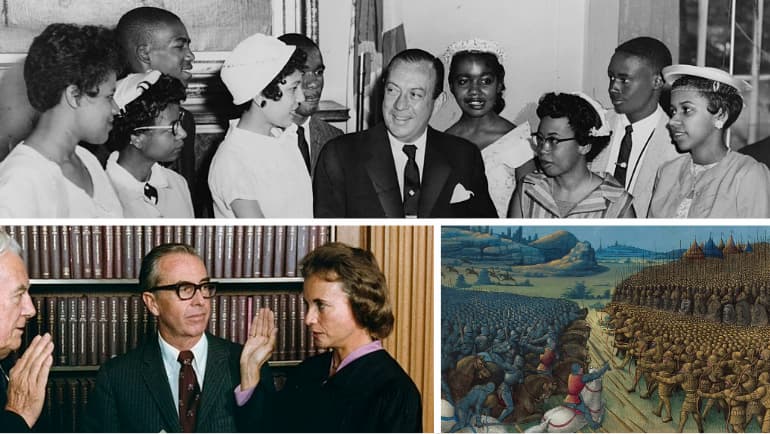Check out This Day in History for Sept. 25, MainStream’s daily look at significant progressive, intersectional historical events.
1396: The last battle of the Christian crusades, the Battle of Nicopolis, ends in brutal loss for the Christians, marking the start of the Ottoman Empire that would reign over much of Europe from the 15th to 18th centuries.
1789: Twelve amendments to the U.S. Constitution are proposed by America’s relatively new Congress — 10 of which would be come the Bill of Rights within two years.
1861: Slaves are recruited to serve in the U.S. Navy and within months constitute 6 percent of the naval force, after being limited to only 5 percent since the 1840s.

1957: The Little Rock Nine , a group of Black students who had been blocked from going to school by white mobs angry at desegregation, attend classes at Little Rock Central High after two days of violence that led to the presence of the National Guard and federal troops.
1942: The War Labor Board requires equal pay for women in a ruling against General Motors, which had been paying men $25 to $20 per pay period more than women.
1981: Sandra Day O’Connor is sworn in as the first woman U.S. Supreme Court Justice and goes on to earn respect for not only her 24 years as a moderate conservative on the court, but as a leader of civics education.
2019: A bill that allows cannabis businesses to engage in banking is passed by the U.S. House with a bipartisan 321-103 vote. The Secure and Fair Enforcement (SAFE) Banking Act has now morphed into the SAFER Act (Secure and Fair Enforcement and Regulation) but has yet to become law despite bipartisan support in several congressional sessions.
2022: Cuba legalizes same-sex marriage through a national referendum as part of a “family law” that earns the support of almost 67 percent of the country’s voters.

